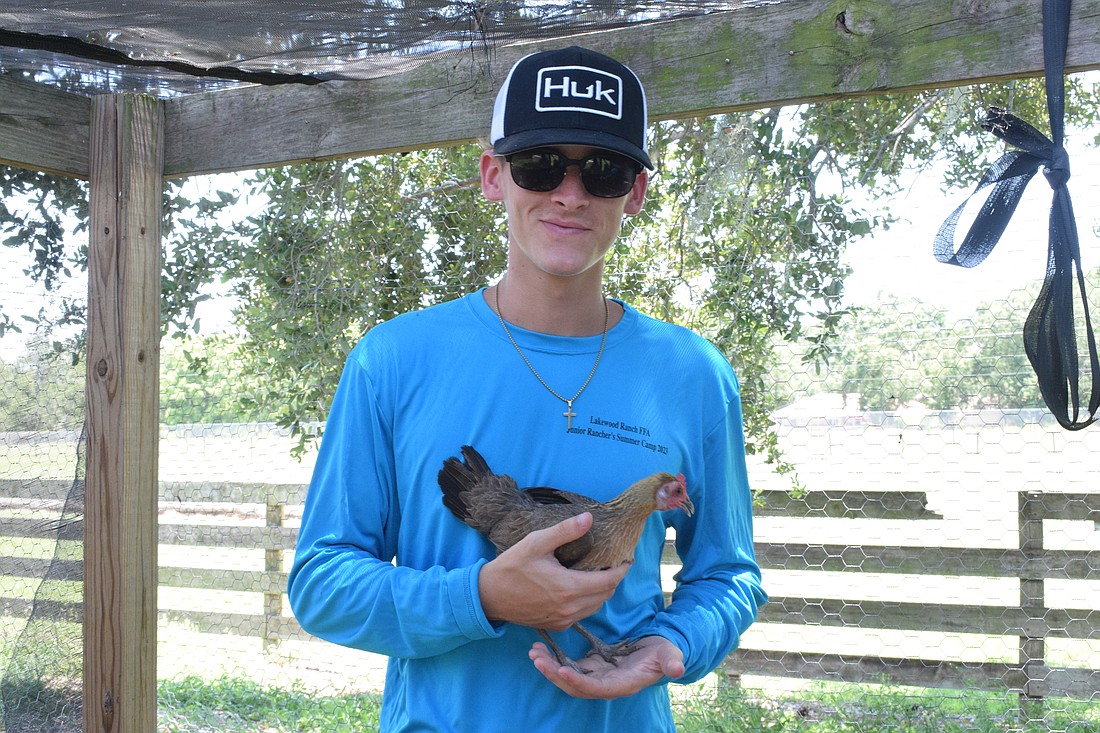- May 3, 2024
-
-
Loading

Loading

Every student in the state has the opportunity to go to college for free in Florida if they choose.
The Florida Department of Education’s Bright Futures Scholarship program gives students the opportunity to receive four types of scholarships, which the FDOE funds through the state lottery.
More than 950,000 students have received scholarships through the Bright Futures Scholarship program.
Shannon Fleming, the director of secondary curriculum for the School District of Manatee County, said the program can benefit all students.
“Post secondary education is expensive, and any opportunity we can get our students to graduate either debt free or with less debt is the biggest benefit to all,” she said.
Each of the scholarships have their own specific requirements, such as achieving a certain ACT or SAT score and completing a certain amount of volunteer service hours or work hours.
New to the program as of the 2022-2023 school year, students will be eligible for the scholarship if they complete 100 paid work hours instead of service hours.
As of July 1, students will be able to combine volunteer service hours and work hours to meet the requirements.
Fleming said the new option opens the door for more students to be eligible.
“It’s probably the most helpful for our students who have other obligations,” Fleming said. “They don’t have a lot of extra time necessarily to go volunteer. They might be taking care of siblings. They might have other household obligations. Anytime we can remove barriers for our students to be able to be eligible for scholarships, I think that’s huge.”
The biggest challenge students face is reaching the service hour requirement or work hour requirement.
Fleming encourages students to start chipping away at their hours their freshman year.
“One hundred hours over four years is probably not overly difficult,” she said. “We have a lot of clubs and organizations that promote community service, and they’re out there searching for the opportunities for students and presenting them to them. We have students that graduate with more than 100 hours.”
Students have until the last day of their senior year to complete their hours.
Another challenge students might face is achieving the SAT or ACT scores required to earn a Florida Academic Scholars or Florida Medallion Scholars award.
Fleming said some students might need to put in more time preparing for the tests, such as taking ACT or SAT prep classes.
All students must apply for the scholarship by submitting the Florida Financial Aid Application by Aug. 31 the same year of graduating high school.
Fleming said if students do not apply before the deadline, they will not be eligible for Bright Futures scholaships.
Students who do not intend to enroll in a college, university or technical program immediately following high school graduation can still apply for the Bright Futures Scholarship program and later apply within five years of high school graduation to have the award reinstated.
Fleming said students who plan to attend a private Florida institution can also reap the benefits of the Bright Futures Scholarship porgram. Students will receive a comparable amount.
Here are the different Bright Futures Scholarships and their requirements:
This scholarship covers 100% tuition for students who attend a public Florida college or university.
Requirements:
This scholarship covers 75% of tuition to a public Florida institution.
If a student is in an associate’s degree at a state college, the student could receive full tuition coverage. For example, a student enrolled at Florida State University could receive 75% coverage, while a student at the State College of Florida could receive 100% coverage.
Requirements:
This scholarship is for students in a career education or certificate program.
Requirements:
This scholarship is for students enrolled in a career education or certificate program.
Requirements: